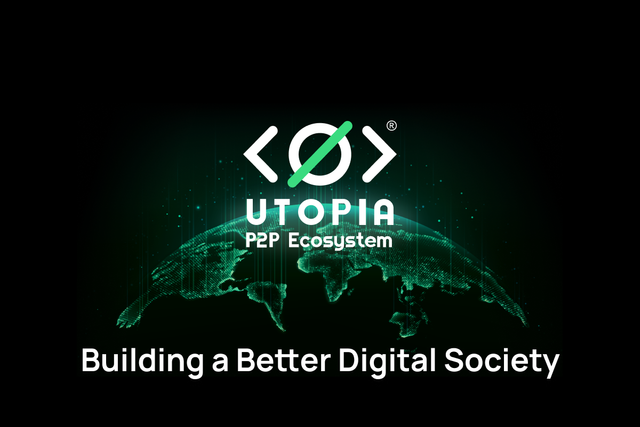
Albert Einstein said shortly after the Second World War that humanity had survived an atomic explosion in 1945, but by the end of the century it would have to survive an equally important information explosion.
It began shortly after these words, with the invention of transistor radios, the launch of artificial Earth satellites, and the beginning of international television broadcasting.
The changes that began to take place in the last century have led us to the digital society of today.
But what is digitalization? Is it good or bad for us? And how can we build a better digital society?
What is digitalization?
Digitalization, in simple terms, is the introduction of modern computing technologies into all spheres of life, business, and public administration. This concept currently exists in all developed countries seeking to improve and simplify the lives of their people.
Digitalization is a process of modernization which has the following properties:
- Complexity
Digitalization is a complex phenomenon. It takes place in all spheres of society at once. The socio-economic, political-legal, and spiritual-cultural institutions of humanity are being transformed simultaneously at the local, regional, national, and global levels.
- Globality
Digitalization is a global phenomenon. All national governments and multinational corporations are aimed at it. The world wants economic prosperity and improved human well-being; digitalization helps economies to expand and develop, which is beneficial to everyone, and therefore it is conducted purposefully.
- Inevitability
Digitalization is an inevitable phenomenon. It will be carried out constantly as one component of the general progress of civilization. There can be no end to digitalization, as scientific research and new developments are being created all the time. Digitalization is accelerating every year, and the results are obvious to all.
What will digitalization lead to?
Digitalization is aimed at a complete digital transformation of a person's entire life through the introduction of digital technologies. If the goals of digitalization are successfully achieved, human civilization will reach a qualitatively new level of development. However, it is not possible to predict what will happen next, and there are potential negative consequences.
I. Cybercrime and cyberterrorism
When the entire functioning of the human device system is tied exclusively to digital technologies, it will be necessary to attach great importance to information security. Otherwise, cybercriminals and cyberterrorists will have their hands free, and they will be able to do great harm within the system. This should not be allowed under any circumstances.
II. Unemployment and displacement of people by robots
Many fear that in the near future robots will completely replace people in many professions. First, this would apply to simple, repetitive, physically difficult or life-threatening work. Creative professions are a little more difficult, but neural networks and artificial intelligence are already creating their masterpieces. In any case, this problem of displacement is real, and something needs to be done about it.
III. Technological gap and digital polarization
Polarization is present everywhere: both in the wild and in civilized societies. Some states are rich, others are poor. It is the same in the areas of technologization and digitalization: some countries spread their influence through transnational IT giants, while others lack the means and capabilities to simply provide the population with the internet and devices. Moreover, the technological and digital gap between different parts of the world is constantly increasing. What to do about it is unclear.
IV. Digital and technological slavery
One of the most important problems is the suppression of human freedom by technology. Digitalization gives people comfort, convenience, and access to many benefits, but in return it deprives them of the freedom to live as they want. Technology suppresses individuals’ desire for independence and responsibility for their fate. The only way out of this situation is to completely abandon any technology to gain true freedom.
V. Total control and lack of confidentiality
The age-old conflict between the confidentiality of personal information and the security of society has been resolved for a long time. The powerful of this world chose security at the expense of freedom to gain the ethical and legitimate right to control people's public speech.
A digital society with Utopia P2P
Surely, digitalization has some undesirable effects. At the same time, digitalization has some advantages, which consist of the introduction of new technologies. Despite all the disadvantages, they make our lives easier.
For example, new improved tools have begun to appear that are ready to provide 100% protection of user data and guarantee online security.
Have you heard about Utopia P2P? The decentralized and anonymous ecosystem ensures users’ privacy and security on the internet.
The ecosystem developers have created a unique tool that can support a digital society that is accessible and safe for everyone. The ecosystem is a closed internet world in the global internet space that has everything you need for private and anonymous use.
For clarity, here are the main tools and advantages of Utopia P2P.
uMessenger is an instant messenger that will provide fast messaging between users. For fans of secret conversations, there is a function for creating private chats that will be under lock and key.
uMail is a secure alternative to email, which will definitely not receive emails from scammers and suspicious links. It ensures maximum confidentiality of transferred files and documents, the size of which is not limited.
Idyll Browser is a new generation browser that includes already created websites in the ecosystem. The good news is that each participant can independently create websites that will be accessible to everyone.
This is only a small part of what the ecosystem can provide when building a better digital community.
Conclusion
Users around the world have been attracted the Utopia P2P ecosystem by such advantages as its security and degree of reliability, data confidentiality, anonymous registration, and free download, as well as the close-knit community of people who already trust and use the ecosystem daily.